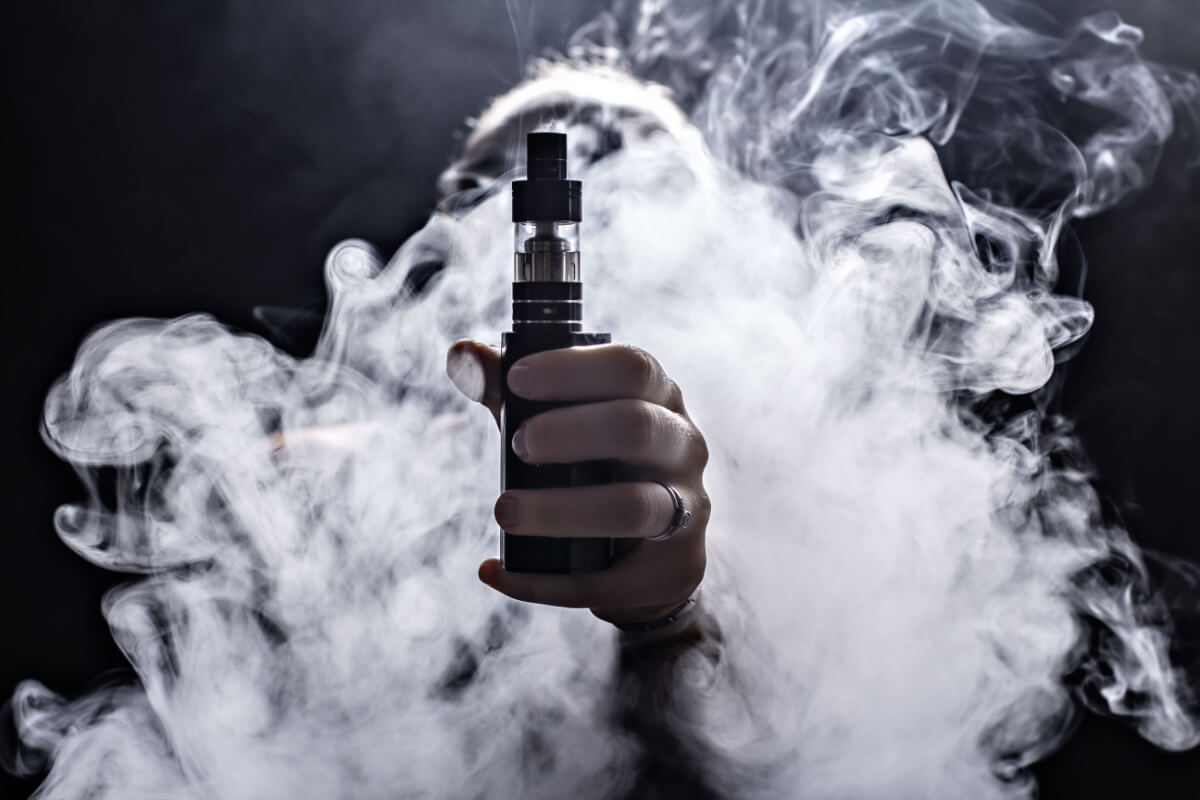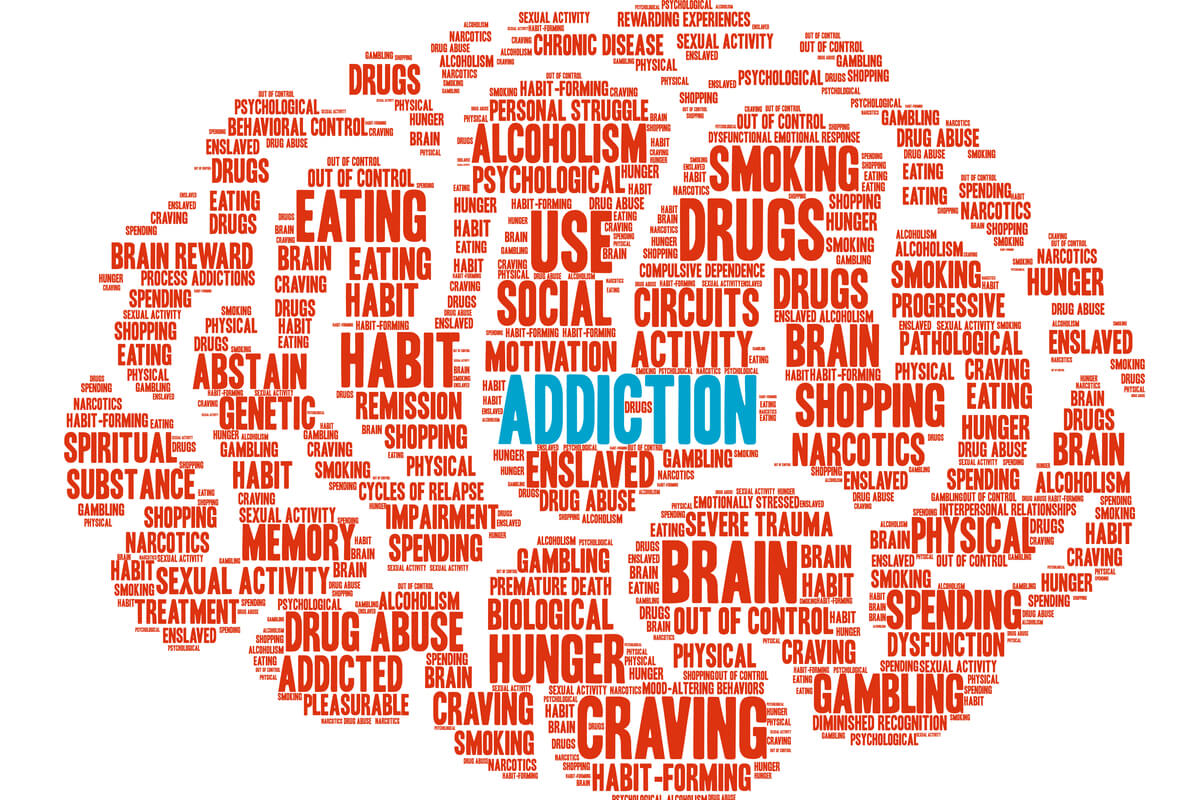
Some people have heard that vaping is “safer” than smoking, but it isn’t really “safe.” In fact, people have gotten extremely sick and even died from vaping. The many health risks associated with the practice are the top reasons to quit vaping. Learn more here.
What is “vaping”?
Vaping is the use of an electronic cigarette device. Vaping devices can be used to smoke nicotine or potentially marijuana and other inhalable substances.
Some people have misconceptions about vaping. They may have heard that it is “safer” than smoking cigarettes. They may have also heard that is can help people to quit smoking. Others, usually younger adults, simply like it because vaping cartridges can come in many flavors that can be inhaled.
Despite its potential effects on a person’s health, many people are under the false impression that vaping is “safe”.[1]
What Are the Risks of Vaping?
Some of the risks of vaping include the following:
You Could Get Sick or Even Die
Vaping has been linked to a number of people getting sick, totaling at least in the hundreds. This is called VAPLI (Vaping-Associated Acute Lung Injury). The individual may experience acute shortness of breath, chest pain, nausea, vomiting, diarrhea, fatigue, and stomach pain. There have also been several hundred confirmed deaths related to vaping (VAPLI). The scary thing about VAPLI is that it seems to be able to happen to just about anyone – even young people who are otherwise healthy.
Vaping Is Addictive
Vaping with nicotine is addictive. Some people think that using vapes instead of cigarettes in less addictive, but as of now we do not have the evidence to say that is true. Use of vaping products may lead to the use of other nicotine products like tobacco cigarettes and the development of nicotine dependence.
Vaping Doesn’t Necessarily Help You Quit Smoking
Despite being widely marketed as devices that can help a person quit smoking, the use of vapes has not been shown to be helpful in helping people quit smoking long term in multiple population based studies. [3] That being said, some people may claim that switching to vaping has helped them to cut back on smoking. Its important to know that while some people may get a reduction in overall nicotine consumption, it is not at this time a validated treatment for helping people to quit smoking.
Vaping Can Worsen Your Mental Health, Sleep, and Pain
We often think of nicotine as causing chronic lung disease and lung cancer, not to mention raising blood pressure and increasing the risk for heart disease. However, we may forget the more subtle effects that nicotine produces in our body that can really worsen our quality of life: Nicotine use, including vaping, has been shown extensively to cause worsening chronic pain and sensitivity to pain, chronic inflammation, negative impacts on sleep quality, and worsening number of mental health.[4] Vaping can make all of these problems worse day to day. If you are someone with chronic pain, poor sleep, or mood issues, quitting smoking and/or vaping can potentially improve all of these aspects of your life.
Vaping & Substance Misuse
There’s significant debate over the validity of the idea of “gateway” drugs – the idea that starting with a comparatively “safe drug” like nicotine or marijana, increases the risk of more serious drug use in future. However, vaping does have some troubling links to further substance misuse.
One study found that while many people who smoke tobacco do switch to e-cigarettes, many people also experience the opposite, starting with vaping and then switching to tobacco products.[5] At the very least, it seems vaping can be a gateway to other similar products, including those that are more dangerous.
Treatment Options for Vaping Addiction
Because vaping is still relatively new, the best way to quit vaping products is understudied. [6] At its core, a vaping addiction is generally a nicotine addiction. Nicotine is difficult to quit on your own. Instead, talk to an addiction treatment professional about the best way to quit. This professional can help you form a treatment plan and prescribe medications if indicated.
Vaping can also be treated with the same medications commonly used to treat cigarette addiction, including nicotine replacement therapies, Chantix, or Wellbutrin. Vaping addiction can also be treated with behavioral therapy.
Many people find they are able to successfully quit smoking or vaping for good once they have some professional assistance, even after they had repeatedly been unable to do so on their own.

Medically Reviewed By Elena Hill, MD, MPH
Elena Hill, MD; MPH received her MD and Masters of Public Health degrees at Tufts Medical School and completed her family medicine residency at Boston Medical Center. She is currently an attending physician at Bronxcare Health Systems in the Bronx, NY where ... Read More
- Risks of Vaping. Government of Canada. https://www.canada.ca/en/health-canada/services/smoking-tobacco/vaping/risks.html. March 2022. Accessed November 2022.
- 9 Urgent Reasons to Stop Vaping Right Now. The Healthy. https://www.thehealthy.com/addiction/smoking/urgent-reasons-stop-vaping/. September 2020. Accessed November 2022.
- How Quitting Nicotine Can Improve Mental Health. Truth Initiative. https://truthinitiative.org/research-resources/quitting-smoking-vaping/how-quitting-nicotine-can-improve-mental-health. November 2021. Accessed November 2022.
- Exploring the Gateway Hypothesis of E-Cigarettes and Tobacco: A Prospective Replication Study Among Adolescents in the Netherlands and Flanders. BMJ Journals. https://tobaccocontrol.bmj.com/content/early/2022/05/08/tobaccocontrol-2021-056528. July 2021. Accessed November 2022.
- Potential Interventions. Stanford Medicine. https://med.stanford.edu/visit/the-clinical-encounter/treatment-options.html. Accessed November 2022.
Download Our Free Program Guide
Learn about our program, its effectiveness and what to expect
Related articles
Imagine what’s possible on the other side of opioid use disorder.
Our science-backed approach boasts 95% of patients reporting no withdrawal symptoms at 7 days. We can help you achieve easier days and a happier future.








